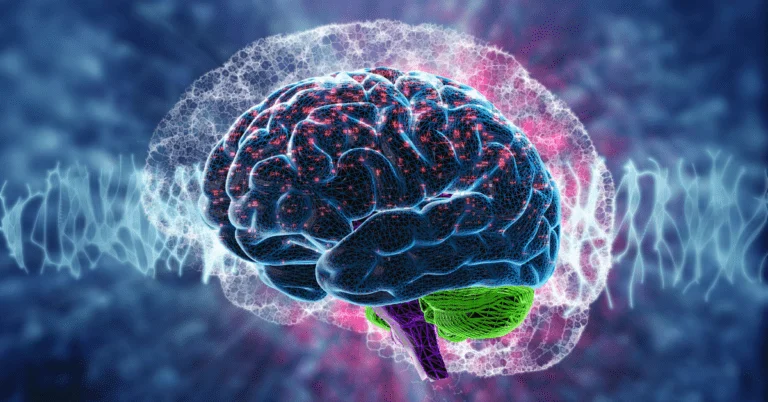Discovering the Details: How Drugs Affect the Brain
As amazing as it may seem, the human brain is the conductor of our mental, emotional, and behavioral symphonies. It controls our whole being via its complex network of neurons and chemicals. Medications, however, can throw this equilibrium off because of their far-reaching impacts on brain chemistry and function. To fully grasp the intricacies of human behavior, particularly during the formative years of adolescence, as well as addiction and mental health illnesses, it is essential to have a firm grasp of the myriad ways in which substances influence the brain.

How Does the Brain Work?
The brain is a complex organ composed of neurons that form networks and send electrical and chemical messages via synapses. Different areas are responsible for specialized functions like thought, emotions, and basic bodily processes. The brain is flexible and communicates through a combination of electrical and chemical signals.
To understand how drugs affect the brain, it is necessary to understand the principles of neurotransmission. Neurotransmitters are chemical messengers that allow neurons, the nervous system's building blocks, to communicate.
What Are the Key Neurotransmitter Systems and Their Functions?
Several neurotransmitter systems regulate mood, cognition, and behavior. Among the most notable are:
1. Dopamine: plays an important role in motivation, reward, pleasure, and motor control. It regulates mood, attention, learning, and the brain's reward system. Dopamine dysregulation is connected with a variety of neurological and mental illnesses, including Parkinson's disease, schizophrenia, and addiction.
2. Serotonin: is largely present in the brain and GI tract. It governs mood, emotion, food, sleep, and several other processes. Serotonin is frequently related to feelings of contentment and happiness. Imbalances in serotonin levels have been related to mood disorders such as sadness and anxiety, as well as other diseases like irritable bowel syndrome and migraines.
3. GABA (Gamma-Aminobutyric Acid): is a neurotransmitter that inhibits neuronal activity in the brain. It works as a relaxing agent, reducing anxiety, increasing relaxation, and regulating muscular tone. GABA helps regulate mood, sleep, and stress reactions. Imbalanced GABA levels have been linked to anxiety disorders, epilepsy, and other neurological problems.
4. Glutamate: is the brain's most abundant excitatory neurotransmitter. It is essential for synaptic transmission, memory, and learning. Glutamate involves various processes, including brain growth, synaptic plasticity, and motor activity. While glutamate is necessary for proper brain function, too much of it can cause excitotoxicity, which has been linked to neurological illnesses such as stroke, epilepsy, Alzheimer's disease, and Parkinson's. Balanced glutamate levels are critical for brain health and cognitive function.
How do Drugs Affect the Brain and Its Neurotransmitter Systems?
Drugs affect the brain by interacting with neurotransmitter systems, either mimicking or modifying the action of endogenous neurotransmitters. For example:
1. Opioids: bind to opioid receptors in the brain, namely mu-opioid receptors. This binding inhibits pain signals, produces bliss by releasing dopamine in the brain's reward system, and depresses the central nervous system, reducing critical activities such as breathing and heart rate. Over time, tolerance and physical reliance may develop, increasing the risk of addiction. Opioids also have effects on mood, sleep, and hormone balance. Their effects on neurotransmitters such as dopamine contribute to their addictive properties and the hazards linked with long-term usage.
2. Cocaine and Amphetamines: Cocaine and amphetamines raise levels of neurotransmitters in the brain, including dopamine, norepinephrine, and serotonin. Cocaine inhibits their reuptake, but amphetamines stimulate their release into the synaptic cleft. This leads to an improvement in mood, energy, and alertness. The accumulation of dopamine promotes euphoria and strengthens drug-seeking behavior, which can develop into addiction and dependence.
3. Benzodiazepines: Benzodiazepines increase the activity of GABA, the brain's primary inhibitory neurotransmitter. By attaching to certain GABA-A receptors, they raise the frequency of chloride channel opening, which makes the cell more positively charged. This causes muscle relaxation, drowsiness, and reduced anxiety. However, prolonged usage might result in tolerance, dependency, and withdrawal symptoms.
4. LSD and Psychedelics: LSD and psychedelics stimulate serotonin receptors in the brain, specifically 5-HT2A. This activation promotes neuroplasticity, disturbs the default mode network, and improves brain connectivity. It may also trigger the release of neurotransmitters such as dopamine and glutamate. These effects cause substantial changes in perception, cognition, and awareness during psychedelic excursions.
How Does the Brain Adapt to Drug Exposure?
The brain adapts to drug exposure through a process known as neuroadaptation, which involves a variety of structural and functional changes in response to repeated exposure. Here is how the brain adjusts to drug exposure:
1. Neurotransmitter Regulation: After repeated drug exposure, the brain may change neurotransmitter levels and receptor sensitivity to maintain equilibrium. For example, chronic drug usage might cause downregulation of specific neurotransmitter receptors, lowering their sensitivity to the drug's effects.
2. Neural Plasticity: The brain's synaptic connections and neural circuits change in response to drug exposure. This neuroplasticity allows the brain to adapt to drug exposure, which may lead to the development of tolerance and dependence.
3. Reward Pathways: Drugs of abuse can hijack the brain's reward pathways, which are responsible for pleasure and reinforcement. With repeated drug exposure, these pathways might become hypersensitive or dysregulated, resulting in increased cravings and compulsive drug-seeking behavior.
4. Learning and Memory: Drug exposure can affect the brain's learning and memory processes. Associations between drug-related stimuli and positive experiences can get stronger over time, resulting in conditioned reactions and an increased risk of relapse.
5. Gene Expression: Chronic drug use can alter gene expression patterns in the brain, resulting in long-term changes in neuronal function and behavior. These modifications may contribute to the maintenance of addictive behaviors even after drug usage has stopped.
Overall, the brain responds to drug exposure via a variety of neurochemical, structural, and functional alterations. These modifications have a substantial impact on the development of addiction and the difficulties associated with overcoming substance use.
Long-Term Impact of Drug Abuse on Brain Structure and Function
Prolonged abuse of drugs can cause long-term harm to the brain, impairing cognitive function, emotional regulation, and overall mental health. Chronic drug use can cause structural changes in the brain, such as changes in grey and white matter volume and abnormalities in neuronal connectivity. Among the most common long-term consequences of drug abuse are:
Neurotoxicity and neurodegeneration
Certain substances, particularly methamphetamine and MDMA (ecstasy), have neurotoxic properties, causing damage to neurons and brain connections. Neurotoxicity is frequently associated with cognitive impairment, mood changes, and an increased risk of neurodegenerative illnesses such as Parkinson's disease.
Psychiatric Comorbidities and Dual Diagnoses
Substance misuse is frequently associated with psychiatric problems such as depression, anxiety, and bipolar disorder. This syndrome, known as dual diagnosis, poses particular obstacles to diagnosis and treatment since substance addiction and mental illness interact synergistically, aggravating symptoms and complicating recovery efforts.
Neurobiological Basis of Addiction
Addiction is a complex brain disorder defined by obsessive drug seeking and use, notwithstanding the negative effects. It is caused by disruption of the brain's reward circuitry, particularly the mesolimbic dopamine pathway. Chronic drug use disturbs the natural balance of dopamine in the brain, hijacking the reward system and encouraging addictive behaviors.
How Do Drugs Affect the Brain of a Teenager?
Drug usage during adolescence has a substantial impact on brain development and function. This phase is characterized by continuing changes in brain structure, connections, and neurotransmitter systems. Prolonged drug use can change brain structure, disrupt neurotransmitter systems important for mood regulation and learning, and raise the risk of addiction.
Teenagers are more vulnerable to substance addiction because of ongoing neurodevelopment and increased reward sensitivity. Drug use during this time might cause cognitive deficiencies and raise the likelihood of mental health disorders like depression and anxiety.
Teen drug use can have long-term consequences, such as an increased chance of substance dependence and poor brain health. Understanding these consequences is critical for developing preventive and intervention strategies that promote healthy brain development and reduce substance abuse-related harm.
Treatment Options for Substance Use Disorders
Treatment of substance use disorders needs a multifaceted strategy that includes medication, behavioral therapies, and psychosocial support. Medications help with withdrawal symptoms and cravings in some addictions, but behavioral therapies like cognitive-behavioral therapy (CBT) and motivational interviewing target the underlying psychological causes that drive addiction.
The significant effect of drugs on the brain emphasizes the complexities of addiction and the difficulties involved in its treatment and prevention. Researchers and clinicians are working to develop creative interventions that address the biological, psychological, and social elements of substance addiction problems by deciphering the complex interplay between substances and brain function.
Through education, knowledge, and compassionate treatment, we can help people regain their lives and begin the path to recovery and healing. Delving deeper into the neurological mechanisms underlying drug effects provides vital insights that pave the way for more effective interventions and ways to combat addiction and promote mental health. Finding the correct treatment center is also critical to assisting someone battling addiction.
Related Articles
Treatment Centers in New Jersey






